Main Menu
Latest Blog Entry
User login
Doctrines of the Great Educators
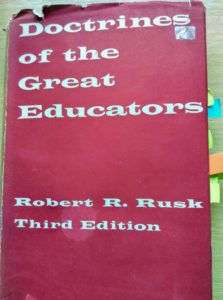
Coaching is teaching.
It is just applied in a different context. Whilst we can get caught up in the Xs and Os, or the latest buzzwords- “constraints led coaching!”, if we look back, we can learn from those that preceded us and find out what truly stands the test of time.
In the book “Doctrines of the Great Educators”, Robert Rusk reviews the principles of 13 great education minds and how they influenced others (1). I have written some notes from the book, and added comments on their applicability to coaching and also to schools and their physical education.
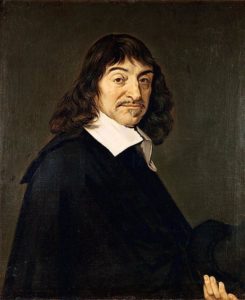
For any p.e. teachers reading this, arm yourself with these quotes when your curriculum is being squeezed. According to Steven Rose, we have Descartes to thank for the current dichotomy of mind versus body in education (2).
The seventeenth century Catholic philosopher and mathematician divided the universe into the mental and the material. It separated the mind or soul from the body. This then influenced science and medicine that divided into cognitive or somatic streams later.
As you may well be aware, the two are intrinsically linked.
Plato.
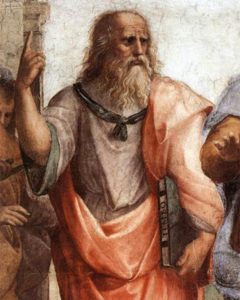
P4 His first task was to lead men to self-examination and self-criticism. “herein is the evil of ignorance, that he who is neither good nor wise is nevertheless satisfied with himself: he has not desire for that of which he feels no want.”
P5 Three stages of knowledge are described:
- Opinion– the individual is unable to give valid reasons for his knowledge or assumed knowledge
- Destructive or analytic stage– the individual realises he does not know what he assumed he knew. Contradiction and perplexity arrives.
- Knowledge– the individual’s experience is critically reconstructed and he can justify his beliefs by giving reasons for them.
P7 “Were not the laws which have the charge of education right in commanding your father to train you in music and gymnastic?”
P19 “Bodily exercise, when compulsory, does no harm to the body; but knowledge which is acquired under compulsion obtains no hold on the mind…. Then do not use compulsion; but let early education be a sort of amusement; you will then be better able to find out the natural bent.”
P33 “The most important part of education is right training in the nursery. The soul of the child in his play should be guided by the love of that sort of excellence in which he grows up to manhood he will have to be perfected.”
Quintilian
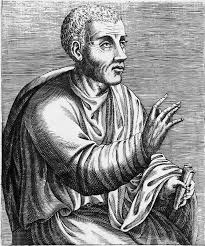
P 44 “Children must be allowed relaxation, but, as in other particulars, a mean has to be preserved; deny them play, they hate study; allow them too much recreation, they acquire a habit of idleness. Play also reveals their bent and moral character, and Quintilian observes that the boy who is gloomy, downcast and languid, and dead to the ardour of play affords no great expectations of a sprightly disposition for study.”
Elyot
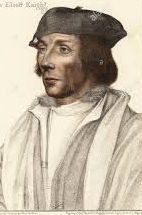
P58 “The first duty of the tutor is to know the nature of the pupil, approving and extolling any virtuous dispositions which the latter should happen to possess and condemning in no hesitating manner which might lead the pupil into evil. He should also take care that the pupil is not fatigued with continual learning, but that study is diversified with exercise.”
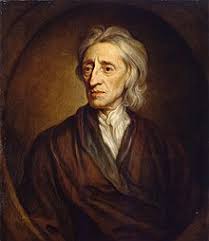
Locke
P 141 “It is forgotten that these urchins who gambol upon village-greens are in many respects favourably circumstanced- that their lives are spent in perpetual play; that they are all day breathing fresh air; and that their systems are not disturbed by over-taxed brains.”
P143 “He that hath found a way how to keep up a child’s spirit easy, active and free, and yet at the same time to restrain him from many things he has a mind to, and to draw him to things that are uneasy to him, he, I say, that knows how to reconcile these seeming contradictions, has, in my opinion, got the true secret of education.”
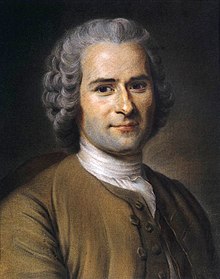
Rousseau
P186 “A feeble body makes a feeble mind.” “All wickedness comes from weakness.” “The weaker the body, the more imperious its demands; the stronger it is, the better it obeys.”
“Would you cultivate your pupil’s intelligence, cultivate the strength it is meant to control? Give his body constant exercise, make it strong and healthy, in order to make him good and wise; let him work, let him do things, let him run and shout, let him always be on the go; make a man of him in strength, and he will soon be a man of reason.
As he grows in health and strength, he grows in wisdom and discernment. This is the way to attaint to what is generally incompatible, strength of body and strength of mind, the reason of the philosopher and the vigour of the athlete.”
Our first teachers are our feet, hands and eyes. “To substitute books for them does not teach us to reason, it teaches us to use the reason of others rather than our own; it teaches us to believe much and know little.”
P190 “Teach by doing whenever you can, and only fall back upon words when doing is out of the question. Let all the lessons of young people take the form of doing rather than talking; let them learn nothing from books which they can learn from experience.”
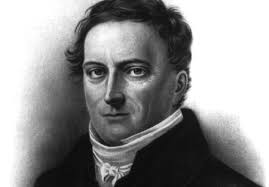
Herbart
P246 Quoting Pestalozzi “I would go so far as to lay it down as a rule that whenever children are inattentive and are apparently taking no interest in a lesson, the teacher should always first look to himself for the reason.”
P249 “Let the main ides which are introduced into a child’s education be few and important, and let them be thrown into every combination possible.”
P254 On discipline which can be broken into two parts:
- Regierung: orderliness or teacher’s control of pupil’s behaviour.
- Zucht: character training or self-discipline.
The former serves primarily the needs of the teacher, the latter those of the pupil. Regierung secures merely external conformity, whereas the work of Zucht is not to secure a certain mode of external behaviour but rather to develop insight and the appropriate volition in the mind of the pupil.
(Interestingly, Oakland Raiders head coach John Madden made the same observations (3))
Discipline need not be repressive: “When the environment is so arranged that childish activity can spontaneously discover the road to the useful and expend itself thereon, then discipline is most successful.”
“The foundation of control consists in keeping children employed.”
He expands further into how the translation of both into English becomes “discipline”.
This can be misconstrued where “A well-disciplined school may be the worst possible institution for the development of character, since it may leave no opportunities for the practice of such actions as are initiated by the pupils’ own motives nor afford occasion for the exercise of self-discovery and self-imposed discipline.”
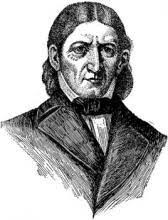
Froebel
P274 “To have educative value the play of the child must not be a purposeless activity; his play impulses must be directed and controlled by the employment of definite material necessitating an orderly sequence in the feelings engendered and in the activities exercised.”
P275 “While play is the characteristic activity of childhood, work is that of boyhood. Interest in the process gves place to interest in the product. Whereas during the previous period of childhood the aim of play consisted simply in activity as such, the aim lies now in definite, conscious purpose.”
P277 “Every child, boy, and youth, whatever his condition or position in life, should devote daily at least one or two hours to some serious activity in the production of some definite external piece of work.”
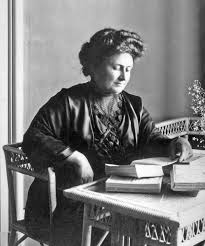
Montessori
P286 “The duration of a process is determined not by the exigencies of an authorised time-table, but by the interval which the child finds requisite to exhaust his interest.”
P287 “When the environment is so planned that childish activity is directed along the lines of the useful and expends itself thus, the result is the most effective form of discipline .”
P288 “Montessori has devised certain formal gymnastic exercises to develop the child in coordinated movements. She disapproves of the child practising the ordinary gymnastic exercises arranged for the adult.”
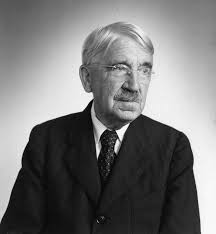
Dewey
P325 “The great change of outlook in biology in the nineteenth century- Darwin’s doctrine of evolution- was not achieved by experiment but by observation and deduction.”
Summary
As you can see, all of these great minds have influenced later generations of teachers. Most of them have expressed the need for mental activity to be balanced with physical activity.
Never did they express the need for a competitive sports based curriculum, led by adults, for adult entertainment.
Thanks to Mandi Abrahams of Castle Books in Beaumaris for sending me this book.
References
- Doctrines of the Great Educators. Robert R. Rusk. 3rd edition Macmillan (1965).
- Steven Rose in How Things Are: A Science Tool-Kit For The Mind. p202. Ed. J. Brockman & K. Matson. Phoenix (1997).
- One Knee Equals Two Feet. John Madden with Dave Anderson. Jove Books (1987).
Further Reading:
- Recommended reading for coaches and teachers.
- How to create an outstanding physical education programme
Client Testimonials
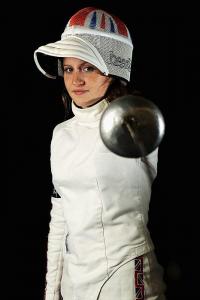 Jenny McGeever
Jenny McGeever
James has been my strength and conditioning coach since June 2009 and during this time he has provided me with constant support and helped me develop as an athlete, from Under 17 international level to senior international. He is currently helping me with my transition from fencer to Modern Pentathlete.
More

